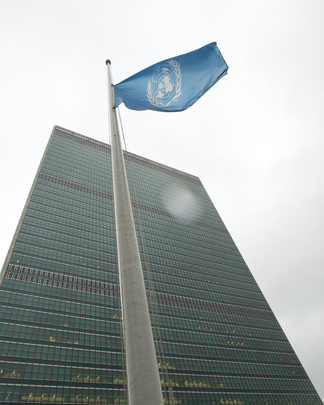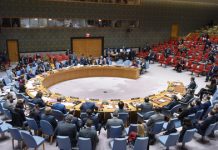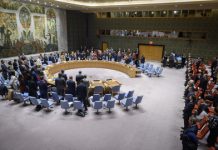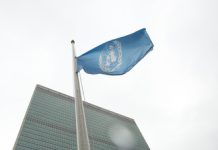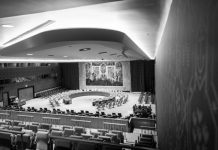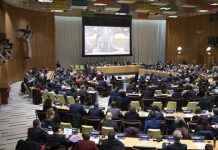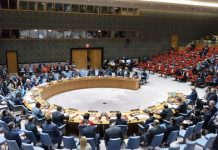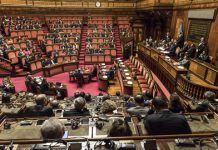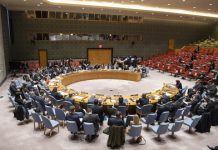Mr. Hassan and his fellow Youth Councillors advise and actively engage with the WHO Director-General and the agency’s senior leadership, designing and expanding the agency’s programmes and strategies.
In an interview with UN News ahead of the 2025 World Health Assembly – the UN’s highest forum for global health – Mr. Hassan, who was born and raised in Texas, USA, explains why he started iCure, a global non-profit organisation designed to ensure that all people receive access to preventative medical screening, and how the pandemic treaty could radically improve care for vulnerable communities.
This interview has been edited for clarity and brevity.
Rehman Hassan: 10 years ago, my grandfather passed away from heart disease. I saw how he was treated differently because of the way that he presented himself, as an immigrant and a person of colour. He was very knowledgeable, but he had limited literacy, and he wasn’t necessarily told what all his options were. I felt that the doctors tried to rush him into surgery and that they forced him to be anaesthetized because they believed he was moving around too much, when in fact he was just in pain and uncomfortable.
I’m convinced that he didn’t get the care that he deserved and that really resonated with me, because I wanted to make sure that no one else felt that way. I saw that, as a young person, my role could involve working at a community level, mobilising other young people to promote things like good diet or exercise, and advocate for those who need help.
That’s how iCure started, and it has blossomed into an international movement. We have hosted a youth fellowship programme with around 65 young people from all over the world, from Vietnam to Qatar to Puerto Rico, discussing the health issues they’re seeing and how to address them, as trusted members of their communities, to bridge the kinds of information gaps that are very common in many marginalized communities, especially amongst low income people and immigrants.
UN News: Tell me about your personal experience during the COVID-19 pandemic?
Rehman Hassan: The pandemic was, for many people across the world, a deeply difficult, scary, intense process. I was living with my grandparents who were immunocompromised, and I knew that they were at significant risk. Whilst we had a lot of vaccines in the US, there was a lot of pandemic disinformation and misinformation; presenting it as something that had a low mortality rate and that we could ignore.
In addition, we had a major winter storm in Texas that froze the state for almost two weeks. We didn’t have access to electricity, gas or water. Our house was flooded and ultimately was destroyed. This combination of the climate crisis and the pandemic meant that many people, especially in my community, were left behind and did not receive the resources that they needed.
Children in Mexico received food baskets during the COVID-19 pandemic (file, 2022)
UN News: The WHO says that the pandemic preparedness treaty, if and when it is adopted, will be a breakthrough for health equity and make a real difference on the ground. Do you agree?
Rehman Hassan: I definitely think it’s a game changer. I got involved with the treaty process through the WHO Youth Council, where I represent an organisation [ACT4FOOD, a global youth-led movement to transform food systems] that primarily focuses on access to food, the social determinants of health and how we can promote change at the community level.
The text of the treaty spells out the efforts that need to be taken at a community level, and each member state has an obligation to make sure that the most vulnerable get access to support or care, as part of their pandemic response plans.
There is a commitment to early detection: if we can detect pandemics early, then we can ensure that everyone has access to the care and resources they need.
UN News: It’s likely that there will be another pandemic in our lifetimes. Will we manage it better than the last one?
Rehman Hassan: We’re definitely seeing an acceleration of pandemics and extreme events that ultimately undermine equity.
I think that the World Health Assembly and the Intergovernmental Negotiating Body for the pandemic treaty have done an incredible job of understanding what went wrong during the COVID-19 pandemic, and previous pandemics, and then looking at how we can craft an instrument that will address those inequities or prevent them from happening in the first place.
If member states deliver a meaningful treaty, I think it would significantly improve and facilitate a much better pandemic response than what we saw during last time.
Source of original article: United Nations (news.un.org). Photo credit: UN. The content of this article does not necessarily reflect the views or opinion of Global Diaspora News (www.globaldiasporanews.net).
To submit your press release: (https://www.globaldiasporanews.com/pr).
To advertise on Global Diaspora News: (www.globaldiasporanews.com/ads).
Sign up to Global Diaspora News newsletter (https://www.globaldiasporanews.com/newsletter/) to start receiving updates and opportunities directly in your email inbox for free.


